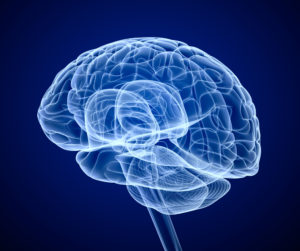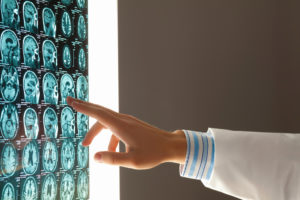
Your brain controls every organ and muscle in your body. It also gathers sensory information and processes your thoughts and emotions.
When you suffer a traumatic brain injury, even a mild one, you can experience physical, cognitive, and emotional symptoms. These symptoms can interfere with your ability to earn a living and engage in daily activities. They can even lead to personality changes.
Learn about the causes and effects of a concussion injury and how you can seek compensation after suffering one.
Table of Contents
How Does Your Brain Work?

Your brain consists of neurons. These cells communicate with each other using a combination of chemical and electrical signals. The connections between neurons store memories. They also carry information between neurons to control your body, generate thoughts, and perceive your environment.
The brain connects to two sets of nerves. The spinal cord carries all the signals between your brain and your body. The cranial nerves carry all the signals between your head and your brain. These two sets of nerves help your brain control your entire body.
Sensory information gets collected by your sense organs, such as your eyes, ears, nose, tongue, and skin. Sensory signals travel to your brain from your sense organs. The brain decodes these signals and uses them to control your body. For example, if your skin senses a hot gust of air, your brain triggers your sweat glands to produce sweat.
It does this by sending control signals to your body. These control signals tell your heart how fast to beat. They also tell your muscles to move your fingers when you want to grasp an object.
How Is Your Brain Protected?
Because your brain plays such a vital role, it has two layers of protection. Your skull protects your brain from impacts. If you bump your head, you might bruise the skin covering your skull. You might even fracture your skull. But whatever hit your head did not strike your brain.
A layer of cerebrospinal fluid (CSF) surrounds your brain. This fluid acts as a cushion for your brain. You can think of it as the padding inside a helmet. The CSF slows down your brain’s motion and stops it from hitting the inside of your skull.
The CSF does this because it has a viscosity slightly thicker than water. It creates drag on the brain that acts like a brake.
How Does a Concussion Injury Happen?
In most cases, the CSF does its job by slowing down your brain and preventing a serious brain injury. But to stop your brain, the CSF must push on the brain. A concussion happens when the pressure of the CSF on your brain results in mild brain damage.
You can get a concussion injury from head trauma. If you slip and fall at a grocery store, you might get a concussion when your head hits the ground.
But you do not need to hit your head to get a concussion injury. The forces on your brain from rapid acceleration or deceleration can jolt your brain enough to move it inside your skull. For example, in a car accident, the CSF slows your brain’s movement in your skull as your body gets whipped around by the collision forces.
In severe cases, the forces you experience during an accident can overcome the CSF’s protection. The brain can slam into the skull and develop a contusion. A brain contusion is a life-threatening injury.
The brain cells that get damaged or destroyed will affect your brain’s function. Also, the body will trigger an inflammatory response to tissue damage. Inflammation causes your brain to swell and increase in temperature. These changes in your brain after a concussion injury will produce physical, cognitive, and emotional effects.
What Are Some Concussion Injury Symptoms?
A concussion injury can cause a wide range of physical symptoms, including:
- Headache
- Blurry vision
- Seeing stars
- Tinnitus
- Slurred speech
- Clumsiness
- Dizziness or nausea that can lead to vomiting
- Drowsiness
A concussion injury can also affect your ability to think and process information.
Some common cognitive symptoms include:
- Confusion
- Brain fog
- Memory loss
- Difficulty concentrating
Finally, concussions can affect your emotions by triggering:
- Depression
- Anxiety
- Paranoia
- Post-traumatic stress disorder (PTSD)
These symptoms usually clear up within two months after the injury. During this time, you might need rest and light duty at work due to your symptoms.
In rare cases, particularly those involving PTSD, you might develop post-concussion syndrome (PCS). In PCS, your symptoms last longer than two months and may develop into chronic health issues that last months or years.
How Do Physicians Rate the Severity of a Concussion Injury?
Doctors rate concussions as mild, moderate, or severe. The rating will often determine the severity and duration of your symptoms.
One rating system used for concussions is called the Glasgow Coma Scale.
This rating system uses three responses to determine the severity of your concussion:
- Eye-opening response
- Motor response
- Verbal response
In a mild concussion, you usually open your eyes spontaneously after the accident, move normally, and answer questions coherently. In a moderate concussion, you might not open your eyes or move until someone prompts you. You might also give incoherent responses to questions.
If you lose consciousness, even briefly, you have a severe concussion. A severe concussion also affects your ability to move, speak, and think.
What Compensation Can You Seek for a Concussion Injury?
You can seek compensation if your concussion results from someone else’s negligent acts. The compensation for a concussion injury can include your economic losses: medical expenses, lost income, and other financial costs of your injury.
Your injury compensation can also include your non-economic losses. These losses cover the impact of your concussion on your quality of life, such as pain, mental anguish, and inability to engage in activities.
After a concussion, the symptoms might prevent you from working for weeks or even months. During this time, your quality of life might diminish as you experience brain fog and other difficulties. To learn about the compensation you can seek for your concussion injury, call (305) 937-0191 to schedule a consultation at Shaked Law Personal Injury Lawyers charge-free.
